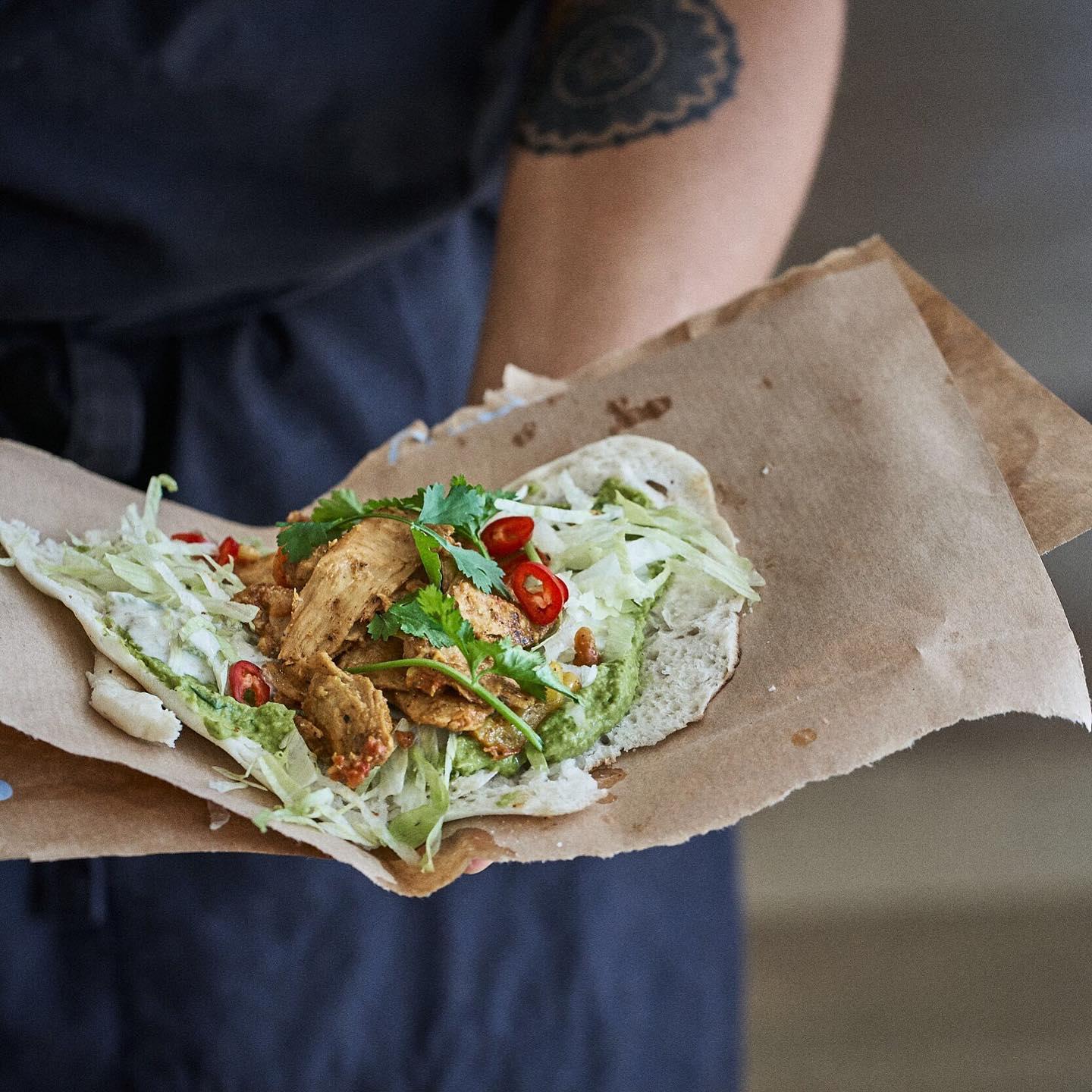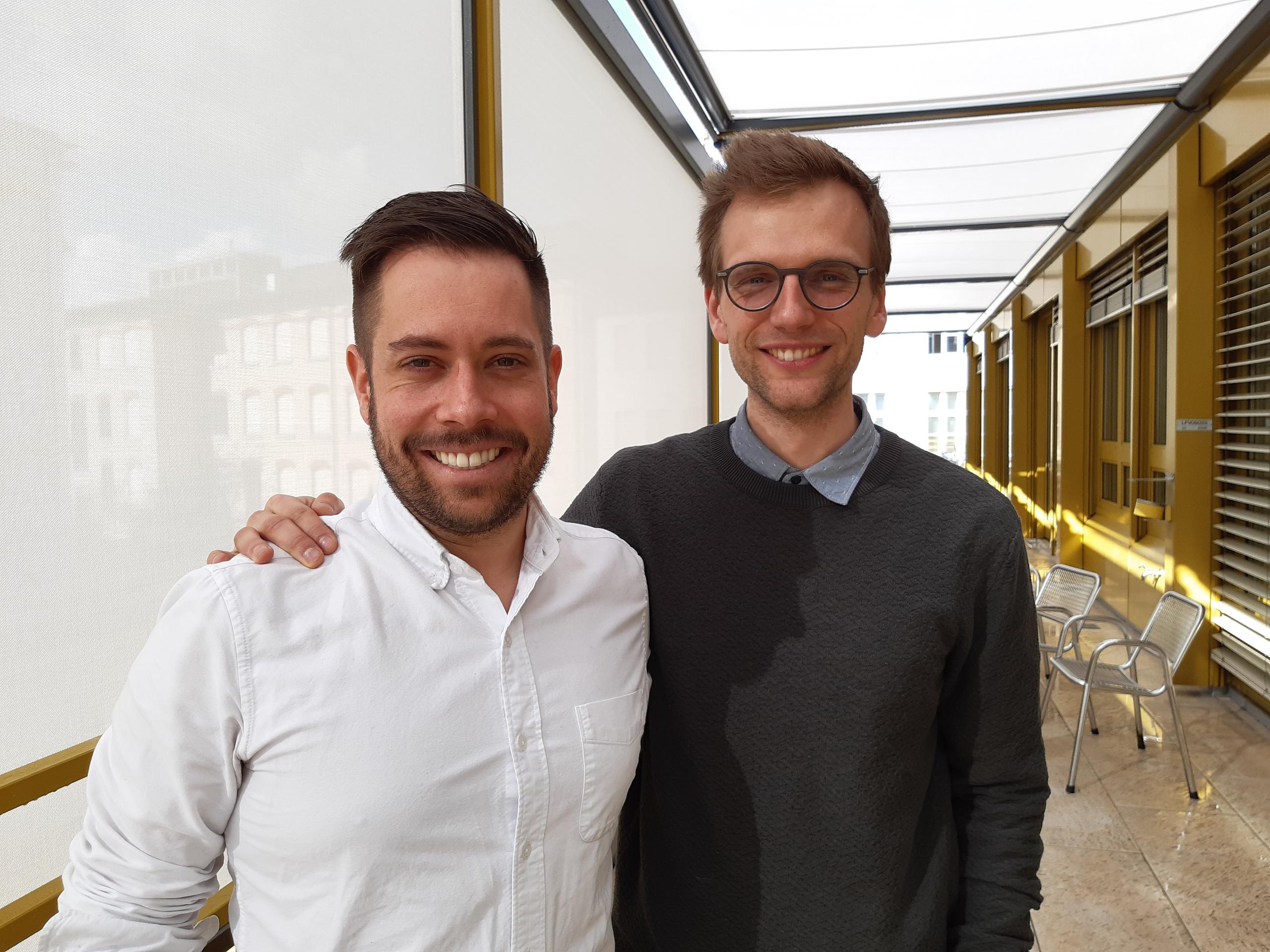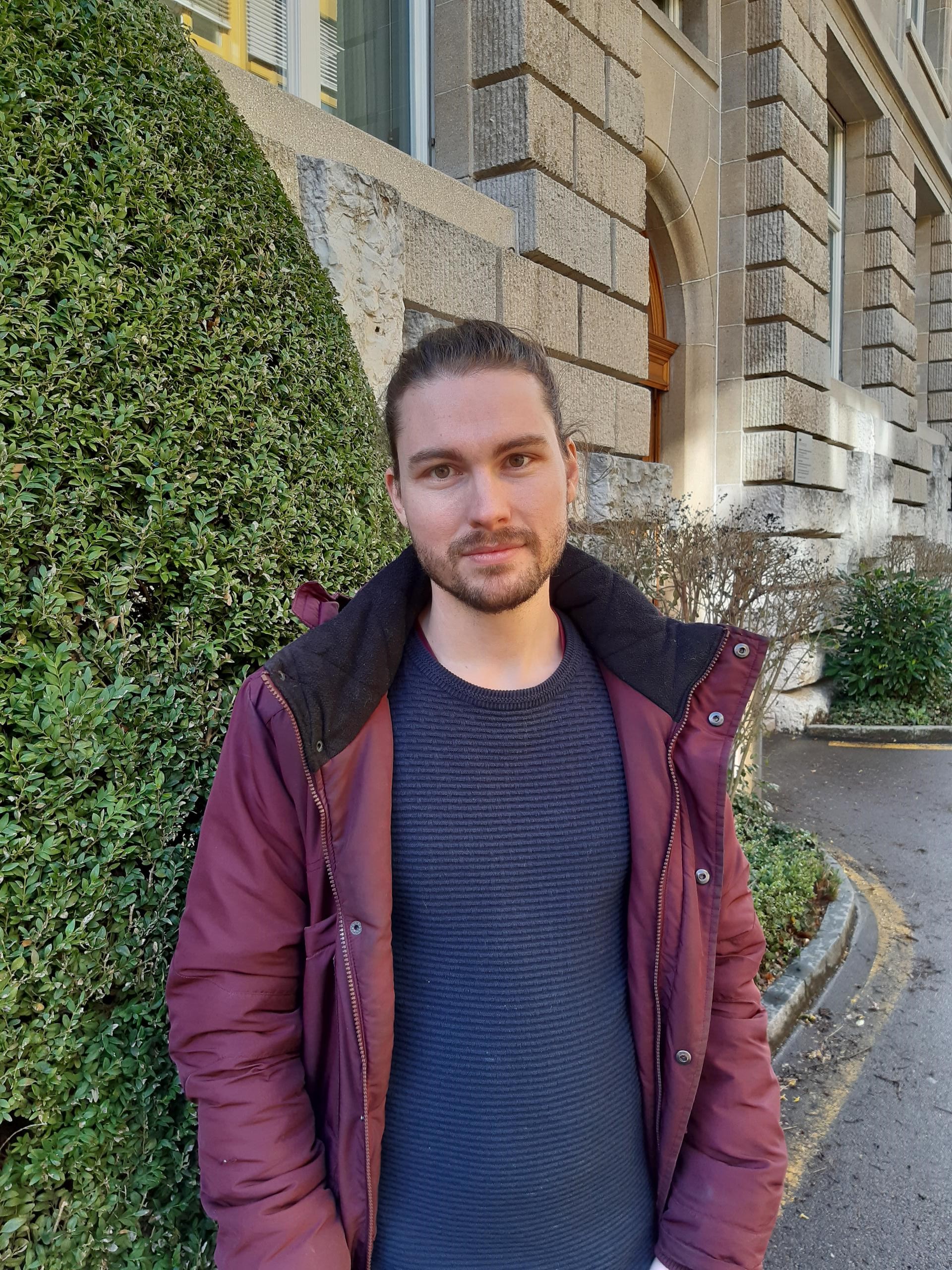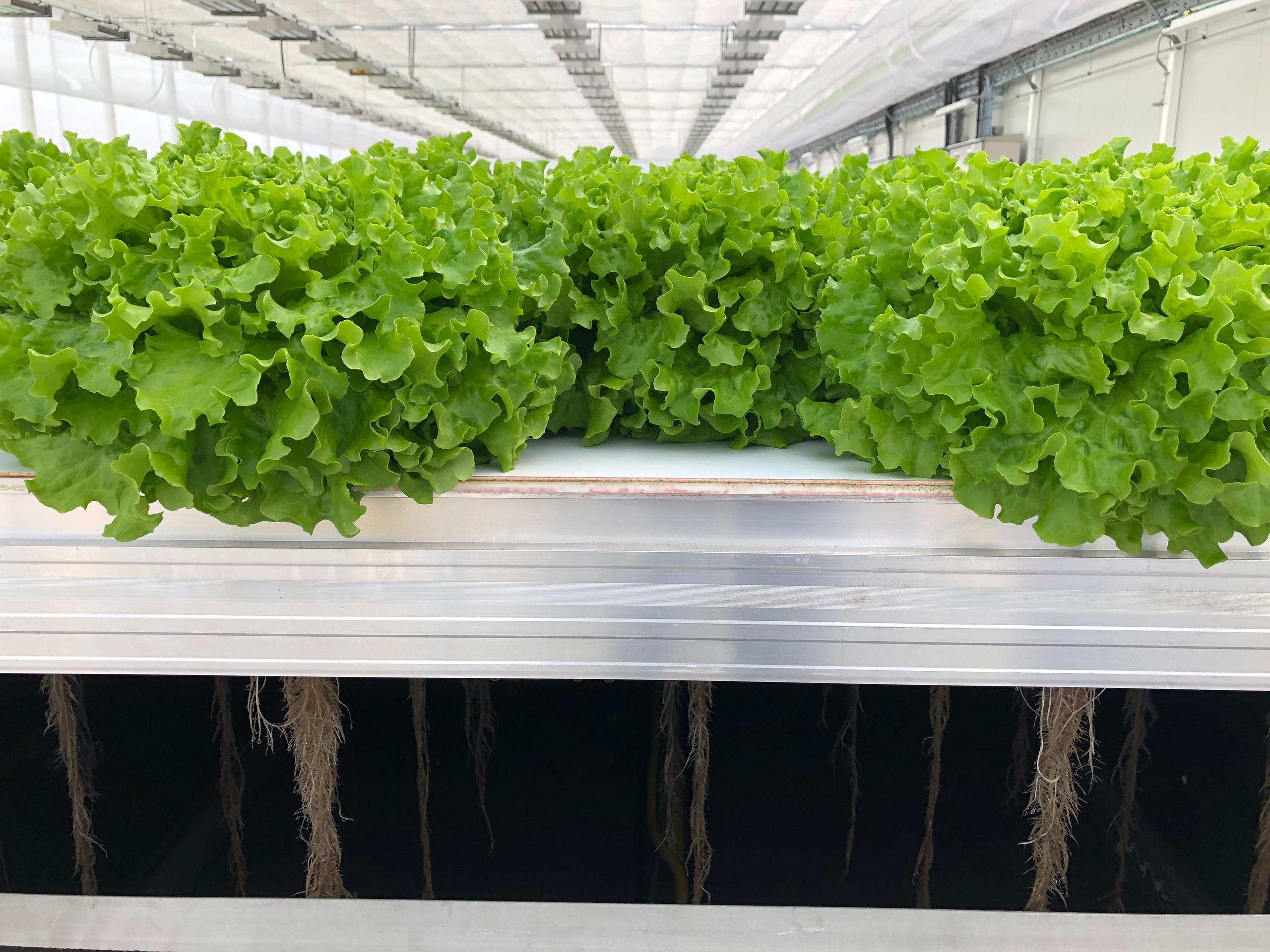
How food is being reimagined in Switzerland

We are taking great care in deciding what we eat, ensuring more often that foods tick the right health, ethical and environmental boxes. Switzerland is proving fertile ground for changing the menu, from a meat substitute based on pea protein to lettuce grown without soil or pesticides. Clare O’Dea digs in.
Some of the new innovations have to be tasted to be believed. Like the chicken substitute being produced by the young team behind Planted AG in Zurich, a spin-off of the Federal Institute of Technology (ETH).
Before I met co-founders Pascal Bieri and Lukas Böni, I popped into a Zurich café to try their product. I ate the plant-based chicken in a salad mix with cabbage, carrot, cucumber, edamame and peanuts. The verdict: looks, feels and tastes like chicken, even when served cold.
Things are moving very fast for the young team behind Planted. It is just two years since cousins Bieri and Böni sat down together and sketched out a two page-summary of their scientific and business concept. Their main motivation was to do something about the unsustainability and cruelty of mass meat production.

Bieri is from a business background and Lukas is the food scientist. Their idea was to create a meat-like substance with four natural ingredients and no additives: pea protein, pea fibre, rapeseed oil and water. Within a year, having joined forces with two others – Eric Stirnemann and Christoph Jenny – they founded Planted AG, which went on to receive CHF7 million ($7.30 million) in seed funding in October 2019.
A May 2019 industry report from Barclays predicted the substitute meat industry could be worth $140 billion by 2029, making up 10% of the meat market. Planted AG wants to be part of that change.
In a space on the ground floor of the ETH’s Food science building, a team of workers is producing 500 kilogrammes per day of the pea-protein chicken to be shipped all over Switzerland. They are using specially adapted machines (extruders) that have a long history in food production, specifically for making pasta.
The chicken substitute is produced through a process called high moisture extrusion. The ingredients in the tube-like extruder are heated and pressurized by two rotating screws, turning the mix into a dough. The process transforms the extracted plant proteins into the fibrous and elongated form of animal muscle fibre proteins.
Planted is supplying a growing number of restaurants and has begun selling its chicken product online and through the major Swiss supermarket chain Coop. The company has outgrown its location and is preparing to move to the old Maggi (a legendary Swiss food brand) factory in Kempthal near Zurich in early summer, where its 22 staff will have more room and production can be increased six- to tenfold.
“We want to expand and build showcase factories all over Europe. And we want to keep improving the product and the production process,” Bieri said. I left Bieri and Böni sitting on the stairs having an impromptu meeting. They are fielding a lot of media interest these days and “need to concentrate on the essentials now”.
Following in the footsteps of Planted, which got started with an initial CHF 150,000 fellowship grant from the ETH Foundation, a new Zurich start-up, LemnaPro, was awarded the same grant last year.
Cyrill Hess of LemnaPro and his research partner Melanie Binggeli are also dreaming big and focused on proteins. This time the dream involves the smallest flowering plant in the world, Wolffia, one of the family of plants commonly known as duckweed.

Hess showed me around the climate-controlled space where the Wolffia is being grown in a shallow pool, covering the water in a carpet of luminous green. Under the right conditions the tiny plant doubles in volume every day.
“I wondered why we weren’t eating it as it was such a sustainable, fast-growing, high-quality source of protein. I started to dig into the protein market and why we eat what we eat and it looked like a business case,” Hess explained.
Better known in Asia where it is eaten fresh, Wolffia is a novel food in Europe that has yet to be recognised by European or Swiss authorities. Hess and his research partner, agricultural scientist Binggeli, are trying to secure this approval while they find the right production conditions that could be replicated on a large scale for human nutrition. One possibility is turning the plant into a protein powder when harvested.
It’s not just the food we eat but the way it is produced that requires rethinking and new technological solutions. Around half of lettuces and herbs sold in Switzerland is grown locally. The rest is imported, mainly in the winter months.
A Swiss company in western Switzerland, CombaGroup, has developed a greenhouse system for leafy greens that produces healthy plants year-round. The greens are grown in a soilless environment using 90% less water and space than conventional agriculture and no pesticides.

This method radically reduces or eliminates most of the environmental burdens of the food production system, particularly transport, agricultural runoff and water waste. In a stress-free environment the plants are healthy and delicious, with no leaves wasted in harvesting.
The technology involved is mobile aeroponics. The roots are suspended in the air and sprayed repeatedly with a fine nutrient-enriched mist by an automated mobile spraying trolley.
Situated in the timeless village of Molondin with its red roof tiles, CombaGroup’s 15 employees share their working site with more traditional agriculture companies. CEO Serge Gander sees his system as an opportunity for growers.
“The volume that can be produced with our system is staggering. Traditional soil culture will give a yield of 30 tonnes per hectare per year. With our system it is 800 tonnes.”
The company has its first projects set up in France and Switzerland and is negotiating with clients from Sweden, Kuwait and Russia. Its business model is to sell a complete growing system along with a service package.
“We can grow anywhere and especially in places that are challenged, whether in land quality, by pollution, climate, access or geopolitical issues.”

In compliance with the JTI standards
More: SWI swissinfo.ch certified by the Journalism Trust Initiative





























You can find an overview of ongoing debates with our journalists here . Please join us!
If you want to start a conversation about a topic raised in this article or want to report factual errors, email us at english@swissinfo.ch.